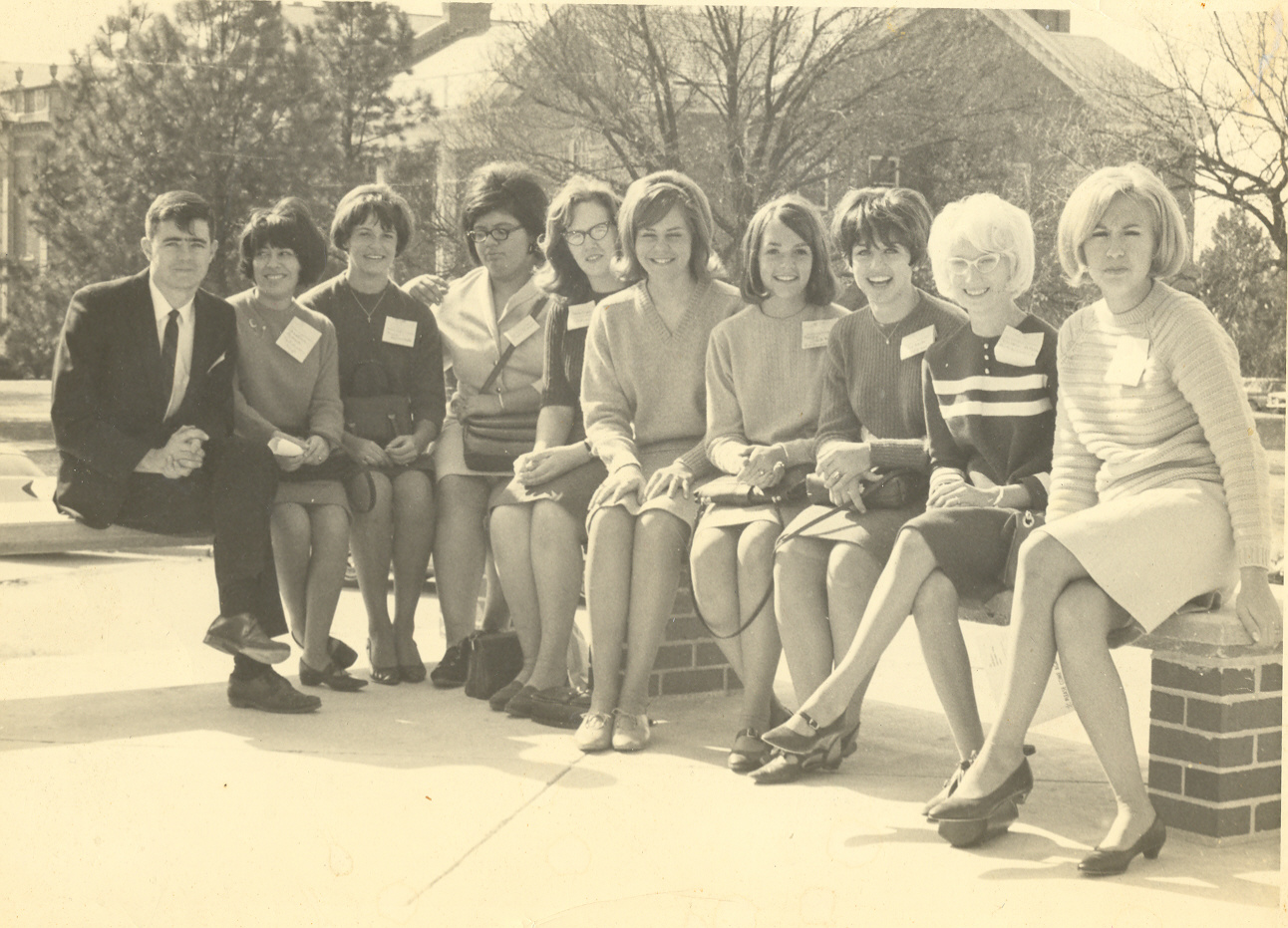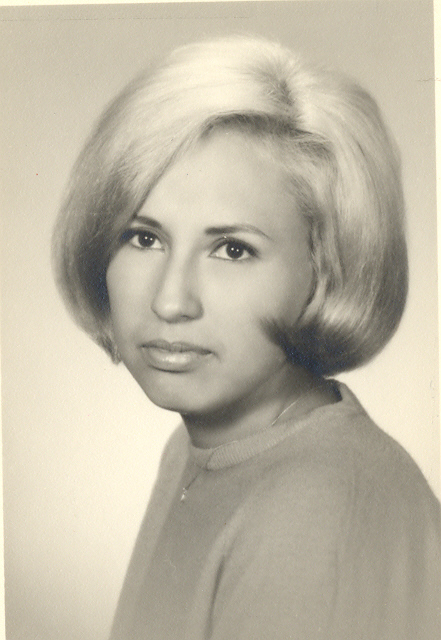TRANSCRIPTION
What is your recollection of life as a migrant worker?
"Well from the time that I was really young I remember us leaving from San Antonio in the spring and be gone until the early part of the fall. We would leave here from San Antonio and go to the Panhandle to pick cotton, we would go to Kansas to do sugar beets, and then we would go up like to Indiana and do tomatoes, and then we would go up to Michigan and do cherries, and then come back home. When I was little, I knew that we were poor, but I didn't realize that being a migrant worker meant that you were REALLY poor. Uh, because everybody, all my relatives, we all lived in the same neighborhood, like actually within blocks of each other, and actually on the same block i think, the majority of the cousins lived and my uncles and all of that and so we would all leave together. So it was like something that we just did, so I didn't know that we were poor and that we had to leave because there wasn't any work here for my mom and my dad."

Since you were so young, were you required to do a lot of work?
"I would basically help them for a little bit and then I would get tired and I would go get underneath the truck and play under there until it was time to eat."
Did your family work every day?
"You didn't work on Saturdays, if you did, you only worked half a day but most of the time you got off Saturday and Sunday."
How did working so young affect your education?
"Well, the thing is that we hardly ever went to school. uh, because we would be gone for so long that we would basically leave before school was out, before May, we would leave in April and then we would come back in September when school was already started. So very few times were we able to go to school. My mom and dad did not know how to read or write, so it wasn't like they would say, "well you need to get to reading and writing" because they didn't know. And so I know that I was probably in the third grade for about three years, because I never could get out of the third grade. Because I was always being left behind because I didn't go to school. I was the first one in my family in all my uncles and aunts and all that to actually graduate from high school. I graduated from high school when I was nineteen. It made me very embarrassed so I always told them I was younger than what I really was."
Did you face any racism growing up?
"I didn't like Kansas because it was a racist state just like Texas was a racist state except when you're living with so many Mexicans around you, you didn't realize that you were being discriminated against or that you really were going to segregated schools or anything because everybody looked like you and everybody was the same and you didn't pay attention, you were a kid, you didn't realize these things. When I left Kansas, people used to tell me "You know, you're not like the rest of the Mexicans, you're a nice Mexican." They were supposed to be complementing me. They thought they were giving me a big complement. They thought that by telling me that I didn't act like them or that I didn't look like them that that was a complement. But it was very traumatic for me to live in that kind of environment. I bleached my hair blond because I really wanted to be white for a long time, and I thought, "Well, maybe if I white then people will except me." But I wasn't really happy because I wasn't white. You know? And I was being somebody that I really wasn't."

You mentioned that your favorite job was being a Vista Volunteer, was is that?
VISTA stands for Volunteers In Service To America. VISTA was the domestic PEACE Corps. VISTA's worked on community projects that helped to empower citizens to improve their quality of life.

Being at home during the Vietnam War, what were those times like?
"At that time, you had everybody wanting to you know, the Peace Corps, the volunteer, be demonstrating, be doing something, being active in some way, doing something that you felt would make a difference in the world."
How did the Vietnam War affect you?
Growing up in a conservative farming community I was very na´ve. I believed everything I saw and hear on radio and television. I believed that our government could do no wrong. The war made me start questioning and not taking everything at face value.
Did you know anyone in the Vietnam War?
My best friend's brother served in Vietnam. When veterans returned they were not treated like heroes as in WW II. These Vietnam veterans were seen as the killers of innocent civilians. He acknowledged that innocent civilians did get killed. It was a matter of survival for the soldiers. To the soldiers every Vietnamese was a potential enemy. One of his buddies was killed by an innocent looking little boy during the conflict.
What were you demonstrating for while the Vietnam War was going on?
I was demonstrating against a seemly endless war that was killing our troops by the thousands and the tremendous amount resources that were being siphoned from the pressing social issues in this country. I demonstrated against the injustice of our government asking our Mexican American to give up their lives for a country that treated them and their families like second class citizens.

Besides the Vietnam War, what other political demonstrations have you been involved in?
The 1960s is known for the civil rights movement in the African American community but during the same time Mexican Americans were fighting for their civil rights as well. There were demonstrations across Texas for farm workers rights, voting rights, equality in education, against the welfare system, and police brutality,
What accomplishments are you most proud of?
Besides my three wonderful children I am proud of having been part of the Chicano movement that fought to bring equality to my people.
What were demonstrations and conferences like to you?
"It was just our whole life and it was a very exciting time. I think that the things we started, and that people started during that time, still have an impact on how people are treated today. And I think it got started back then.

ANALYSIS
I learned a lot from doing this oral history project. I learned how different things were in the 1950s, 1960s, and 1970s. I got to hear firsthand how racial discrimination can affect you and how it was alive back then. I had no idea of all the things that my second cousin had accomplished in her lifetime with her husband William C. Velasquez . I was shocked at how much he did for Mexican Americans. I saw how back then everyone wanted to change the world. It really made me stop and think about what I'm doing and really ask myself if I'm doing anything to change the world. I thought that the 1960s and 1970s were all about hippies and the peace symbol, but this interview made me realize that it was more than just that, these people wanted to change the world. At first I didn't know who I wanted to interview. After I interviewed my second cousin I realized that there were a lot of people that I wanted interview. I think this oral history project is a good tool to help college students really learn about history in a way that they can see firsthand. It really helps people get out there and see the history in front of them.

TIMELINE
- Jane Velasquez born on June 1, 1947 to Carmen and Louis Sarabia in San Antonio, Texas.
- Began traveling with family to work the fields at age 6 in 1953.
- Moved to Hutchinson, Kansas in 1957 because family car broke down.
- Graduated from Hutchinson High School in 1967.
- Moved to back to San Antonio, Texas in 1967 after graduating high school.
- Joined the VISTA Volunteer program in October of 1967.
- Married William Cardenas Velasquez on June 12, 1970 in San Antonio, Texas.
- First child born in San Antonio, TX on May 25, 1973.
- Second child born January 2, 1976.
- Third child born March 5, 1977.
- Father died February 13, 1978.
- Death of husband on June 16, 1988 after battling cancer for one month.
- On behalf of her husband, received the Presidential Medal of Freedom in September of 1995 from President Bill Clinton.
- Started working at Palo Alto in October of 2001.
- Interviewed by Erica Broherd on Monday, October 22, 2007.
ANNOTATED BIBLIOGRAPHY
Hutchinson, Kansas.
Gives the history of Hutchinson. It tells you when the town was founded as well as a calendar of events, a map, visitors information, etc.
Migrant workers.
This website gives you the definition of a migrant worker.
Sociology. This website tells you what sociology is about and its history.
Sugar Beet.
This is a picture of a Sugar Beet.
VISTA Volunteers. his website tells you all about how the VISTA Volunteer program works. It gives links on how you can get involved in your community and join VISTA.
Chicano Movement
. This link tells you a little bit of history about the Chicano Movement.
Biography of William C. Velasquez.
This is the biography of William C. Velasquez, founder of Southwest Voter Registration Education Project.
Return to Oral History Projects

